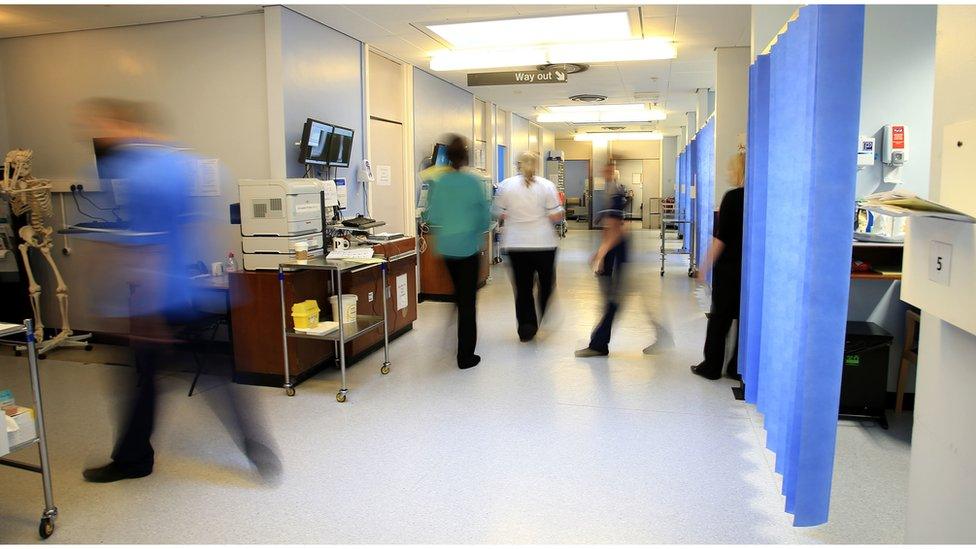Covid-19: Worst 48 hours in NI since start of pandemic
- Published
- comments
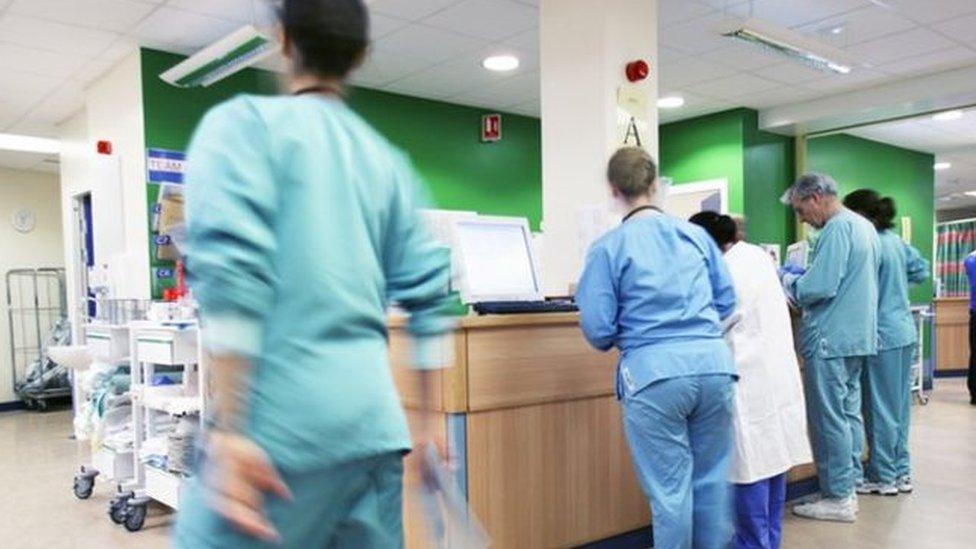
The past 48 hours have been the busiest for health trusts since the start of the pandemic, with appeals to off-duty staff to help ease the pressure.
Some trusts were close to declaring a major incident, which was averted after staff responded to Sunday's call.
NI's six trusts warned that by the third week of January, hospitals could be dealing with double the number of Covid patients.
Health trusts have also said more cancer operations could be cancelled.
The Belfast Health Trust has already cancelled urgent cancer surgeries.
On Monday, a further 16 Covid-related deaths were announced by the Department of Health in Northern Ireland, 15 of them occurring in the last 24 hours., external
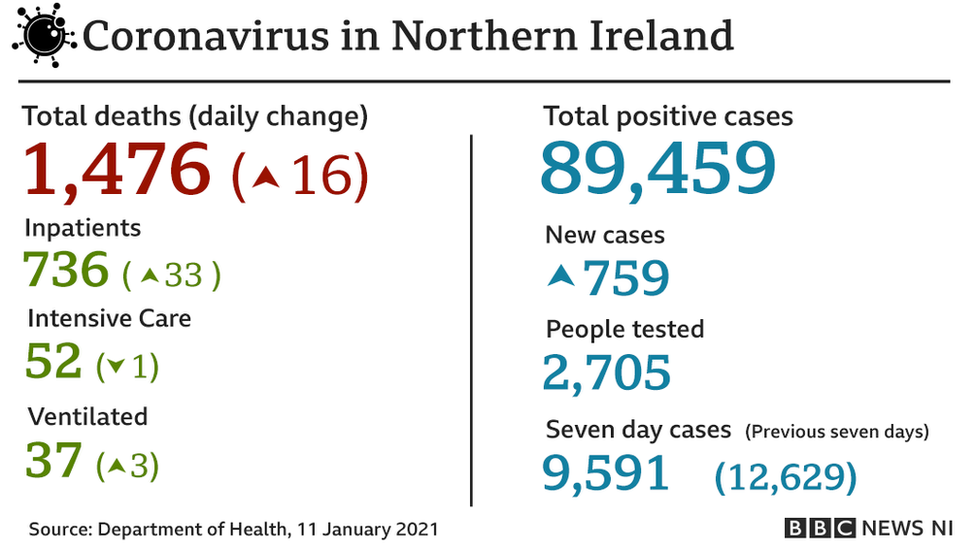
Seven hundred and fifty-nine new cases of the virus were also reported.
The Western Health Trust is appealing to families to bring their loved ones home as soon as they are ready for discharge, and care for them there - even if a package is not yet in place.
Meanwhile, a divert of patients from the Southern Health Trust to the Western Health Trust has been lifted.
Three patients were diverted from the Southern Health Trust to the Western Health Trust overnight on Sunday.
The number of Covid-19 patients being treated by the Southern Health Trust is now 230, up from 215 on Sunday night.
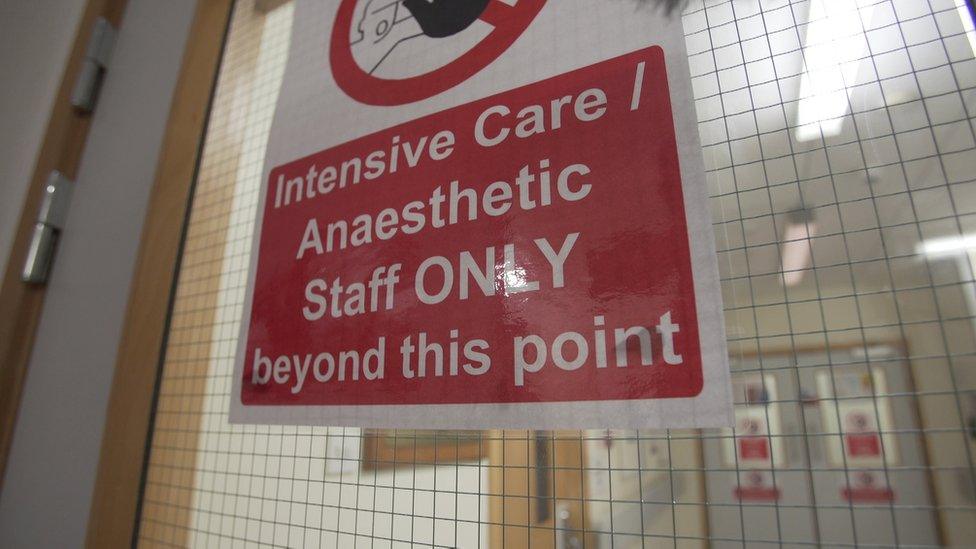
Emergency Department (ED) patients in the trust are experiencing very long waits, with departments expected to be busy again on Monday evening.
In total 91,954 people in Northern Ireland had received at least one coronavirus jab as of Monday night.
First Minister Arlene Foster said on Monday afternoon that the latest modelling showed NI's R-number is sitting at about 1.1-1.2.
This is a drop from an estimated 1.8 earlier in January.
Mrs Foster said things were "moving in the right direction" with a reduction in the number of positive cases, but warned everyone needed to "ready themselves" for strain on the health service in the next few weeks.
She added that the executive had "few options left", if further restrictions were deemed necessary to tackle the transmission of the virus.
The first minister suggested the executive could look at whether curfews should be imposed again.
The executive will meet on Tuesday and Thursday this week for updates from health officials on the coronavirus situation.
The Western Trust warns that hospital admissions will peak in January.
'Inpatient numbers could double'
Speaking to Good Morning Ulster, Western Health Trust chief executive Dr Anne Kilgallen predicted two out of every four patients being treated in hospitals in the west will have coronavirus by the third week of January.
She said currently one in four people in Northern Ireland hospitals has Covid-19.
Dr Kilgallen said the surge over the weekend was "an indication of why" they had to suspend red-flag cancer surgeries.
She added: "We will work our hardest to ensure that we do respond to need. This is one of the reasons why, some trusts and I think this week more of us will do so, we made the extremely difficult decision to postpone cancer surgery."
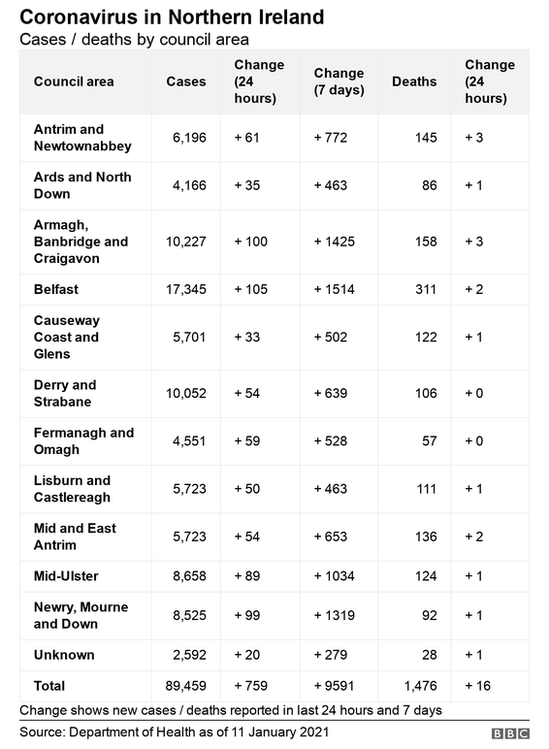
She asked families to bring their relatives home as soon as they are "medically fit" for discharge.
"We realise that this is a big ask of families, but we do need people's help. We cannot keep people in hospital awaiting care packages, or indeed awaiting their preference in terms of a care home."
It is understood at the South West Acute Hospital in Enniskillen, five senior doctors, several radiographers, pharmacists and nurses came into work on Sunday.
This freed up 20 to 30 beds, allowing the Western Health Trust to take on patients from the Southern Health Trust.
Where was the pressure?
Southern Health Trust: 215 Covid patients
Western Health Trust: 90 Covid patients


All weekend, parts of Northern Ireland's health system were under severe pressure but, at times, it seemed the Southern Trust's hospitals were on the brink of falling over.
Appeals were made for additional staff in the Western and Southern Health Trusts while a joint statement by the chief executives of the six health trusts says staff were doing all they could to deal with the situation.
Daisy Hill and Craigavon were especially busy, with appeals made for available staff to come to work.
South West Acute Hospital put out a similar appeal as it prepared to accept ambulance diverts and patients from other areas.
Often an appeal for staff is the first indication that a hospital is about to declare a major incident, but when asked by the BBC if that was the case the Southern Health Trust said calls for additional staff to come to work had helped avoid a crisis.
There have been numerous warnings that January would see an alarming increase in Covid cases, deaths and pressure - sadly, officials aren't being proved wrong.

'Worst case scenario'
Deputy First Minister Michelle O'Neill said Northern Ireland was experiencing the "worst case scenario" predicted at the start of the pandemic.
"We are at the extreme of the pandemic right now, this is the worst situation that we have been in from the very onset."
She added that the peak for Covid-19 cases had "probably been reached" but the peak pressure on the health service was yet to come.
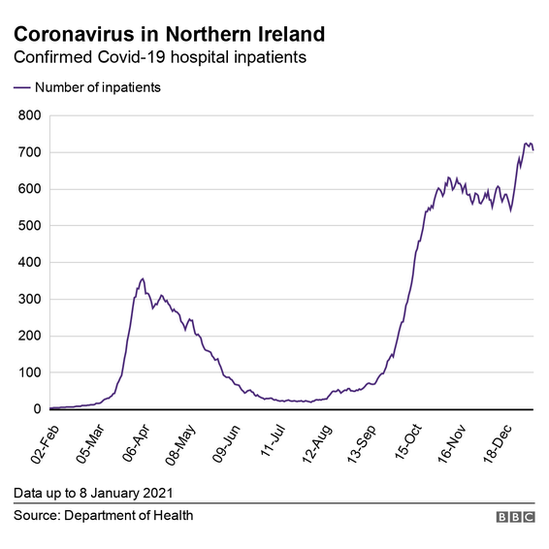
At the weekend, Belfast Trust chief executive Dr Cathy Jack appealed to staff to "voluntarily postpone any planned booked annual leave in the coming weeks".
However, Pat Cullen, director of the Royal College of Nursing NI, said it is an "understatement" to say that staff are feeling tired and overworked and any attempt to force them to cancel annual leave would be "inhumane".
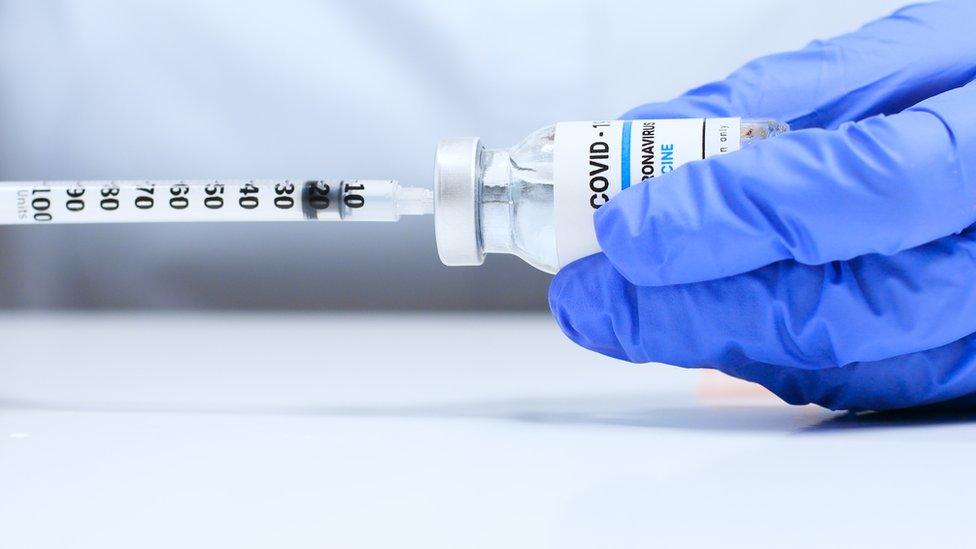
Patricia McKeown of trade union Unison, which represents many nurses, said staff were "tired, they're stressed they're getting infected, they're getting sick, some of them, tragically, haven't made it.
"And yet, incredibly, they responded in the way they did over the weekend.
"But right now they're being asked to give even more, respond again in an even bigger and more intense way, because this coming week is going to be very, very serious."
Chief Medical Officer Dr Michael McBride said it is estimated that on average about "one in 60" people currently have Covid-19 in Northern Ireland.
He said the rising number of cases is a "payback" for the relaxation of restrictions in December.
"We've been running at about 500 people at any one time in our hospitals with Covid," he told The Nolan Show.
"I think it's very likely the numbers will be in excess of a thousand and that will put extreme pressure on an already hard pressed staff.
Related topics
- Published11 January 2021
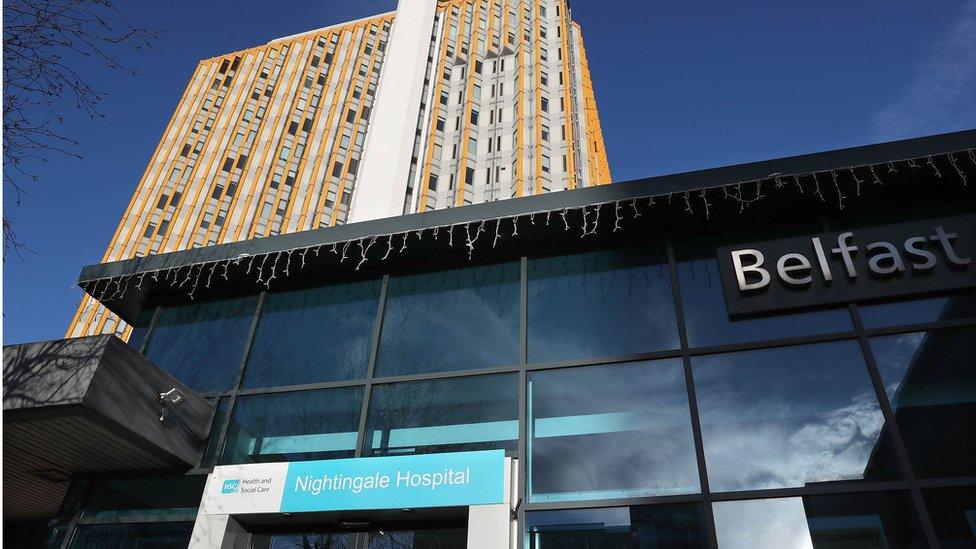
- Published10 January 2021
